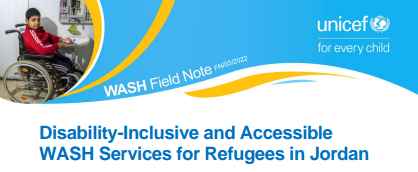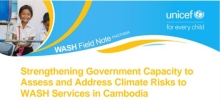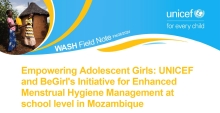Field Note: Disability-Inclusive and Accessible WASH Services for Refugees in Jordan

UNICEF in Jordan provides humanitarian response to the affected population and water, sanitation and hygiene (WASH) services are one of the critical responses that UNICEF offers to refugees in camps, including those with disabilities. Refugees with disabilities can face significant barriers to accessing safe water and the dignified, independent and hygienic use of latrines. UNICEF is overcoming these barriers and meeting the water and sanitation rights and needs of Syrian refugees with disabilities in Za’atari, Azraq, King Abdullah Park (KAP) and Rukban refugee camps. Camp-wide water and waste water systems in Za’atari refugee camp ensure equitable access for every household. In Azraq camp, while refugees still need to collect water from communal collection points, an extension of the water network to the plot leveli is being planned. This will provide easier access for all residents, and persons with disabilities are being consulted in the design process. In all camps, community mobilization activities, with the help of community volunteers, are contributing to smoother and more equitable WASH operations. UNICEF and partners are taking a systematic approach, creating sustainable systems to identify vulnerable households and prioritize and meet their WASH needs in refugee camps. The influx of refugees has placed the education infrastructure in Jordan under strain, resulting in overcrowding and exacerbated difficulties accommodating the needs of students with disabilities. UNICEF is working with the Ministry of Education to strengthen WASH in schools’ policy and practice throughout the whole Kingdom, to create hygienic learning environments for all children, including refugees and children with disabilities, by providing disability accessible toilets and hand-washing facilities. Equitable, inclusive and accessible WASH is a key component of inclusive education for children with disabilities. UNICEF and partners operate 139 child-friendly spaces, called Makani centres, in host communities, refugee camps and informal tented settlements (ITS) in Jordan. These safe spaces provide opportunities and services in learning, child protection, life skills and innovation, and are fully accessible to children with disabilities, including via accessible WASH facilities.




